When the World Withered Away
Medicae Justinian's Account of the Faustian Plague
A week ago, this was the busiest city in the world. Tens of thousands of people going about their day. Now, all that moves are crows and flies and maggots.There are many things for mankind to fear. Darkness, silence, beast and other men, to only count a few. But there is something else. Something you cannot see, cannot hear, smell, taste or feel. A creeping, stalking, lurking horror, able to turn any healthy individual into a corpse in but a moment. You cannot escape it, cannot hide or defend yourself against it. You can only endure and pray. This formless terror has many names. Lungrot, Smiler, Red Death and many many more. One more horrific and deadly than the other. And then there was the Faustian Plague...
It began in Ainach
A sick traveller was nothing new to the keeper of the Jumping Perch. Not in one of the busiest port cities on the Divide. There was just something strange about this one. When the sailor had booked a room in the waning days of the year, he had been brimming with energy. He had been jumping around ceaselessly day after day. The amount of elan the man displayed was almost unsettling. A week later, however, he had looked like death warmed over. He had barely made it into the tavern one morning, his skin unnaturally pale and his muscles twitching ceaselessly. It only got worse. Two days later, he was unable to leave his room. On the third day, he began to vomit blood and puss. Another day later, he was dead, strange black lines stretching across his torso. The innkeeper called the local corpse cart to take the body away and by the end of the week, had already forgotten this obscure occurrence. Two weeks later, Ainach's streets were filled with corpses.Into the Bloodstream
While the innkeeper was still scratching his head at the fate of his unfortunate guest, the killer was already on its way to the other side of the Divide. A simple trade ship was transporting its cargo, probably silverware, toward the ancient metropolis of Rhomeia. Six days after setting sail in Ainach, it was the fourth day of the year 3020 DA, the trader reached Rhomeia, and its crew began to visit the tightly packed harbour district. Over the next few days, the Faustian Plague would find itself on ships heading to nearly every corner of the earth.Death Wanders the World
Unlike what some historians tried to claim later, there was no immediate apocalypse. Just isolated cases here and there. Sailors that just withered away in their cabins, traders who had felt fine at first only to collapse on the street. Everywhere it appeared, the disease showed its now-infamous face. Victims would experience a week of high energy and feel better than they ever had before, only to suddenly sink into torpor, wither away, vomit gallons of blood and finally end up as pale corpses, throat and torso pervaded by black lines. And with each contact, the infected had while still alive the plague struck its claws deeper and deeper into the populace. Seven weeks after that strange man had died in Ainach, the Great Dying began.Dance of the Dead
The first month of every year was a holy time for the Illigarans. Hundreds of thousands of pilgrims would stream into the cities to visit their faiths holy sites or to partake in one of the many festivities. The table was set. To see plagues spread during this time was nothing new. But as people began to collapse by the hundreds, their stinking bodies piling up in the streets, even the most naive people could not deny that something was seriously wrong. All those still capable fled the cities and spread the plague into the furthest corners of Illigara.
The first month of every year was a holy time for the Illigarans. Hundreds of thousands of pilgrims would stream into the cities to visit their faiths holy sites or to partake in one of the many festivities. The table was set. To see plagues spread during this time was nothing new. But as people began to collapse by the hundreds, their stinking bodies piling up in the streets, even the most naive people could not deny that something was seriously wrong. All those still capable fled the cities and spread the plague into the furthest corners of Illigara.
Feast for Crows
Even more so than Illigara, Mykonia was the perfect feeding ground for the affliction. Decades of civil strife and famine had weakened the populace greatly. Large refugee camps pressed against the walls of harbour cities, columns of migrant workers and soldiers, moved from region to region. Any of the travelling Ordo Medicanii had long since abandoned the area under constant threat of attack. No region would see the plague rage, as Mykonia did, nearly half of its population would die within the next three years.
Even more so than Illigara, Mykonia was the perfect feeding ground for the affliction. Decades of civil strife and famine had weakened the populace greatly. Large refugee camps pressed against the walls of harbour cities, columns of migrant workers and soldiers, moved from region to region. Any of the travelling Ordo Medicanii had long since abandoned the area under constant threat of attack. No region would see the plague rage, as Mykonia did, nearly half of its population would die within the next three years.
Keeping the Peace
Two very different ways in which the plague was handle could be observed in the Rhomeian Empire and Anidara. Once the plague had become noticeable, the first acted swiftly and brutally. People showing the telltale high energy were put under quarantine, entire quarters of the city isolated, the Melian Archipelago was put under lockdown and bodies were swiftly burned. Emperor Justin III. did not care how harsh the measures he enacted had to be as long as they hemmed the disease. In hindsight, these regulations seem to have worked as the Empire saw the lowest death rate of all affected regions, only losing about a tenth of its population. In contrast, the city-states of Anidara choose not to act at all. Cases of plague were reported early on, but the ruling class feared that panic could damage the fragile trade routes that only recently had been rebuild. Even the war-torn regions of Mykonia had tried to put some measures into place, while Anidara seemed to almost blissfully ignore the issue with devastating results. The south would see the effects of the Faustian Plague the longest and have several more waves hit in the following decades.Rage Against the Disease
About seven months after first appearing in Ainach, the plague had spread across most of western Vardania. Medicae soon determined it to be a new, previously unknown illness and named it Morbus Faustere or Faustian Plague in the common tongue. By this time, Ainach was drowning in bodies and news of the new plague had spread far and wide. The Hegemony responded by cutting travel between its provinces, only allowing vital goods to pass through. Affected areas were put under lockdown, no one allowed to leave and only medicae allowed to enter. Thousands of medicae were drafted, the army was mobilized to secure the borders and the various Ordo's given vast powers and privileges to combat the plague. Knowing that the affliction seemed to spread especially fast in cities, the Hegemony deported large amounts of city dwellers into the countryside. There they were divided into smaller groups and put to work on the fields or to help construct new camps for the ill. While often described as barbaric, these measures seemed to have mitigated the plague somewhat. Some areas remained entirely free of death's pale grip, and Vardania would see one of the lowest death rates.Pale Rider
Within two years, the Faustian Plague spread to nearly every corner of the world. Raging in every class and ethnicity, it would claim countless lives before slowly fading away. The third-year, saw it disappear from the Melian Isles and the Vardanian coast and by the end of the fourth year, the disease had ceased nearly everywhere outside of Anidara. In its wake, it left desolate cities, ruined nations and millions of bodies. Accurate numbers are hard to come by outside of more centralized states. But based on numbers gained in Vardania, several archivists have determined that three out of every ten humans fell victim to the Faustian Plague. Even three centuries later, many areas have not recovered. Today, the plague seems to have disappeared, but any competent medicae knows this to be but a reprieve. There will be a time again, when the Faustian Plague raises its abhorrent shadow over the world and black lined corpses cover the land hundreds of meters high.
Corpus Medicae - Ch. 15 P. 237
Torrential Diseases - Faustian Plague
- Type: Viral
- Cause: Faustian Particular
- Transmission: Human-to-Human
- Incubation Period: 10-14 Days
- Acute Period: 3-5 Days
- Lethality: 8 out of 10
- Cause of Death: Total Organ Failure
- First Recorded Outbreak: 3020 DA
- Deaths: 78 - 145 Million
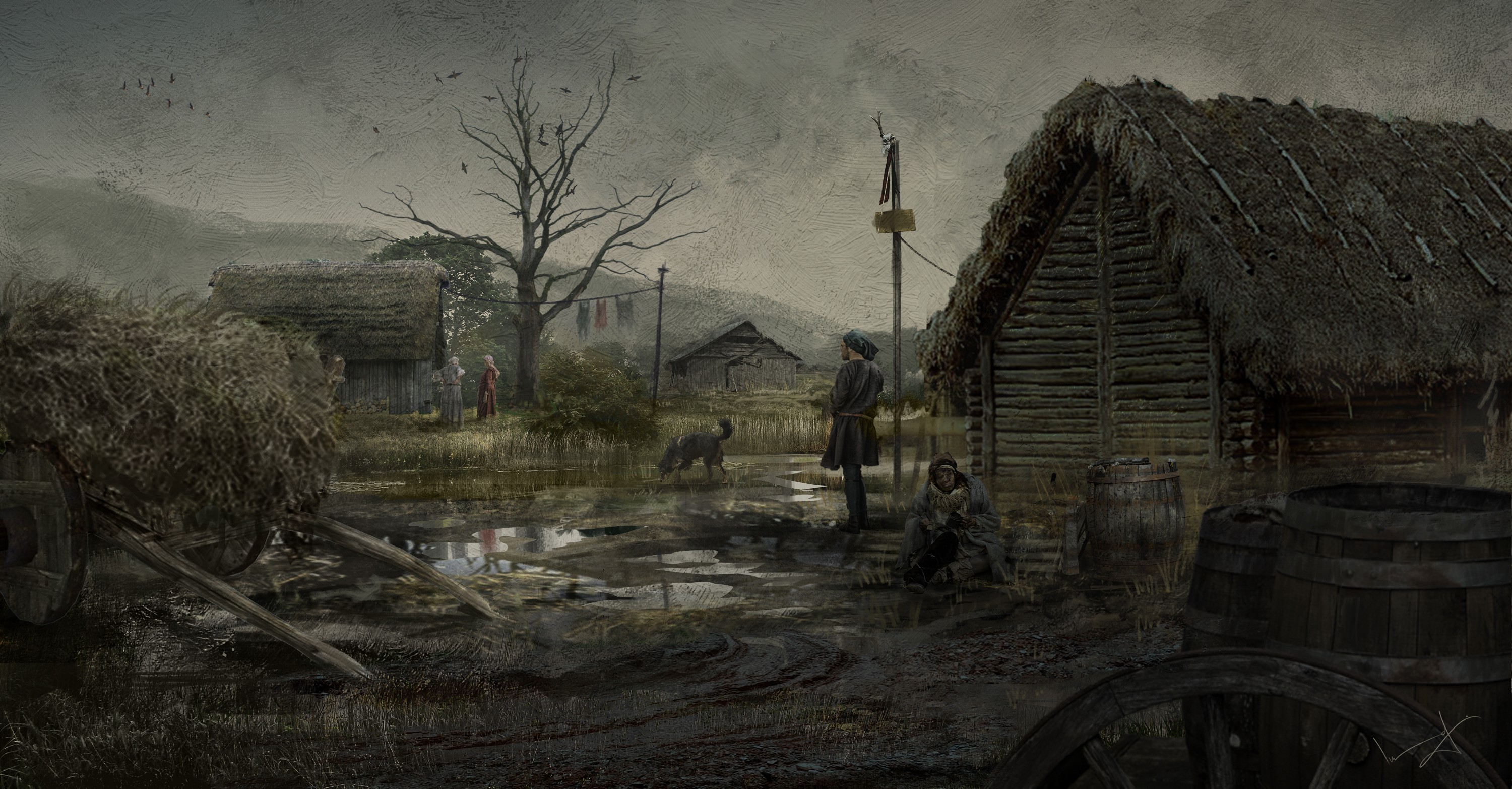
by Imad Awan

by Imad Awan
There is no life left here. Only blackened, rotting, oozing mountains of flesh. Nothing could ever safe this place. Cleanse it. Burn it. Burn the entire city!
Remove these ads. Join the Worldbuilders Guild

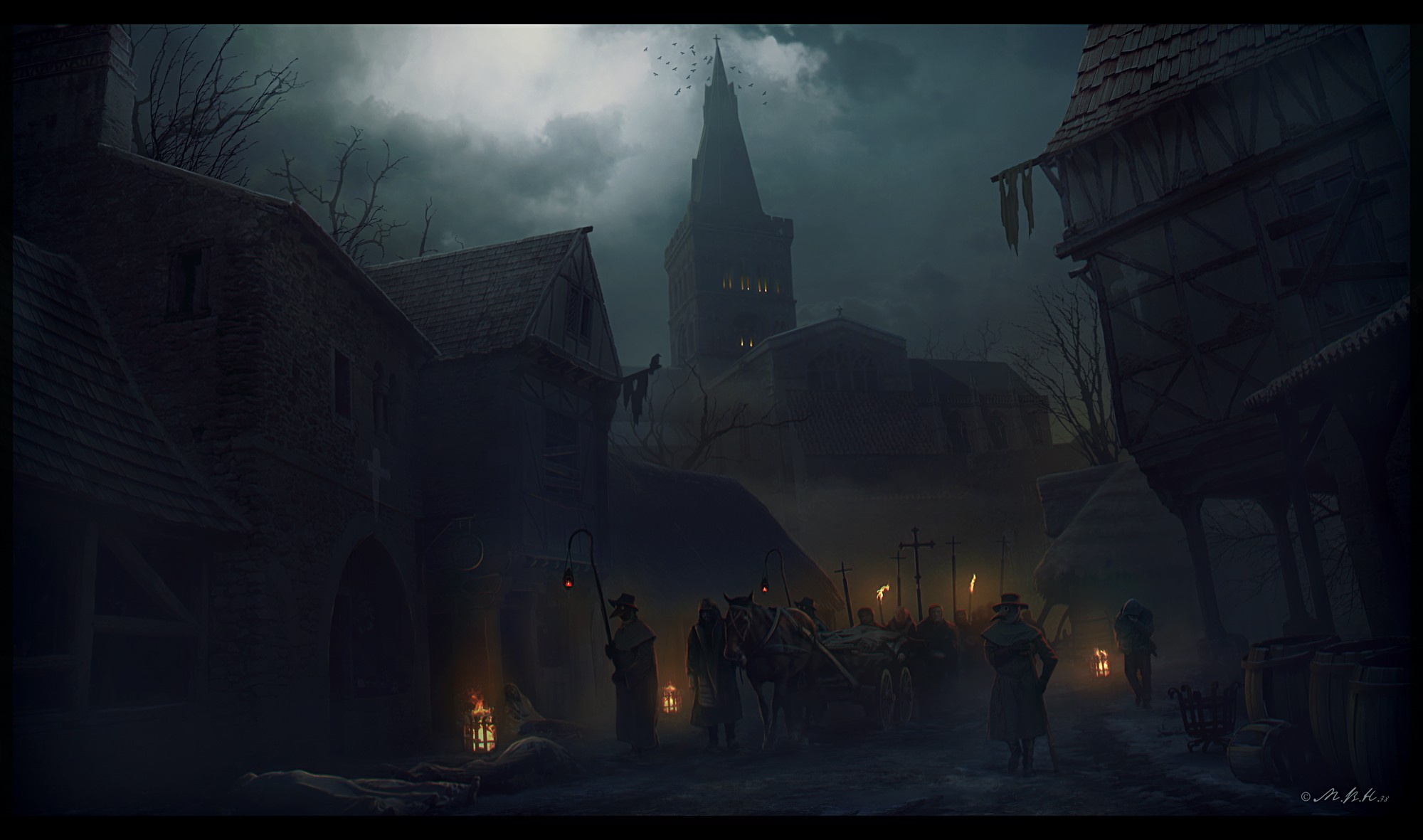
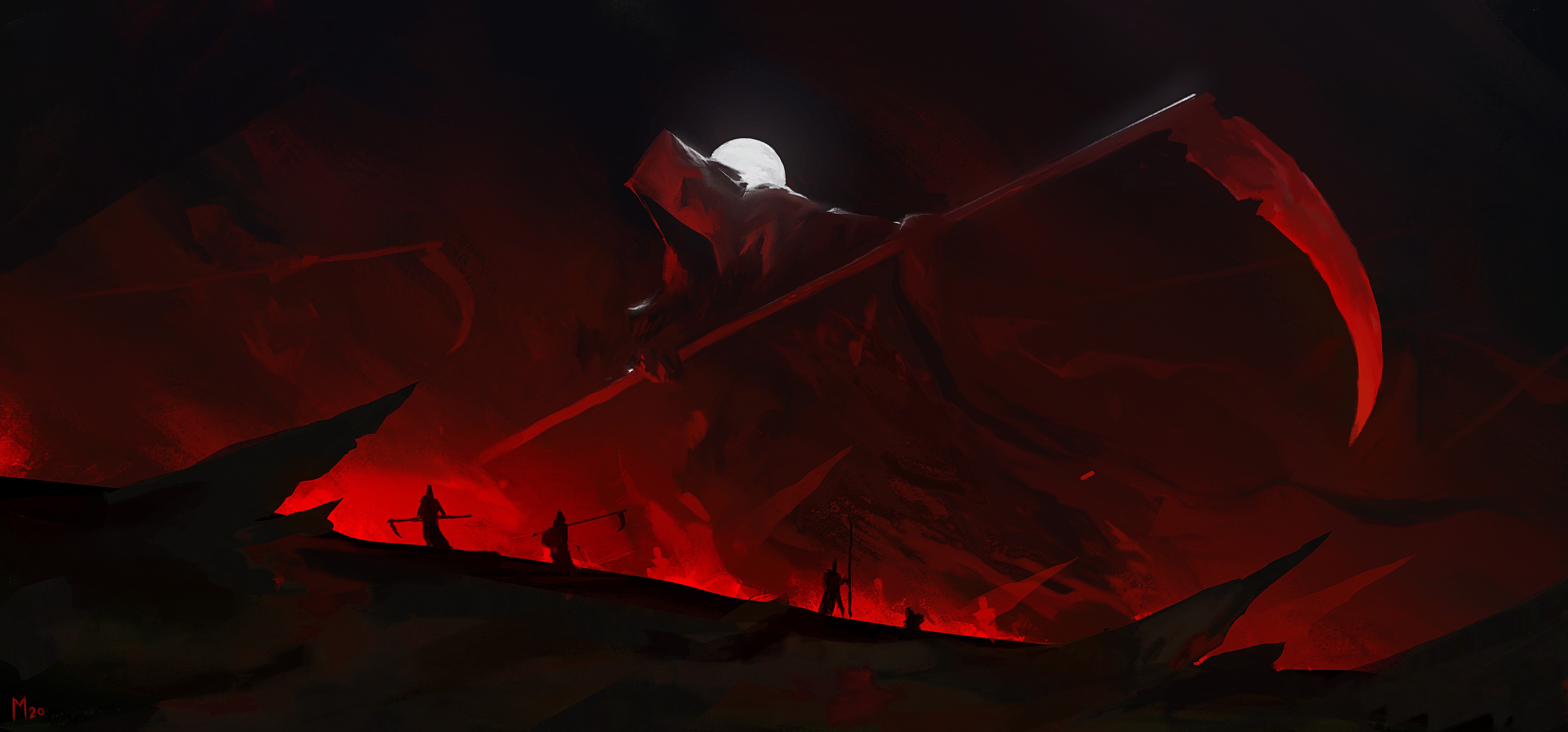
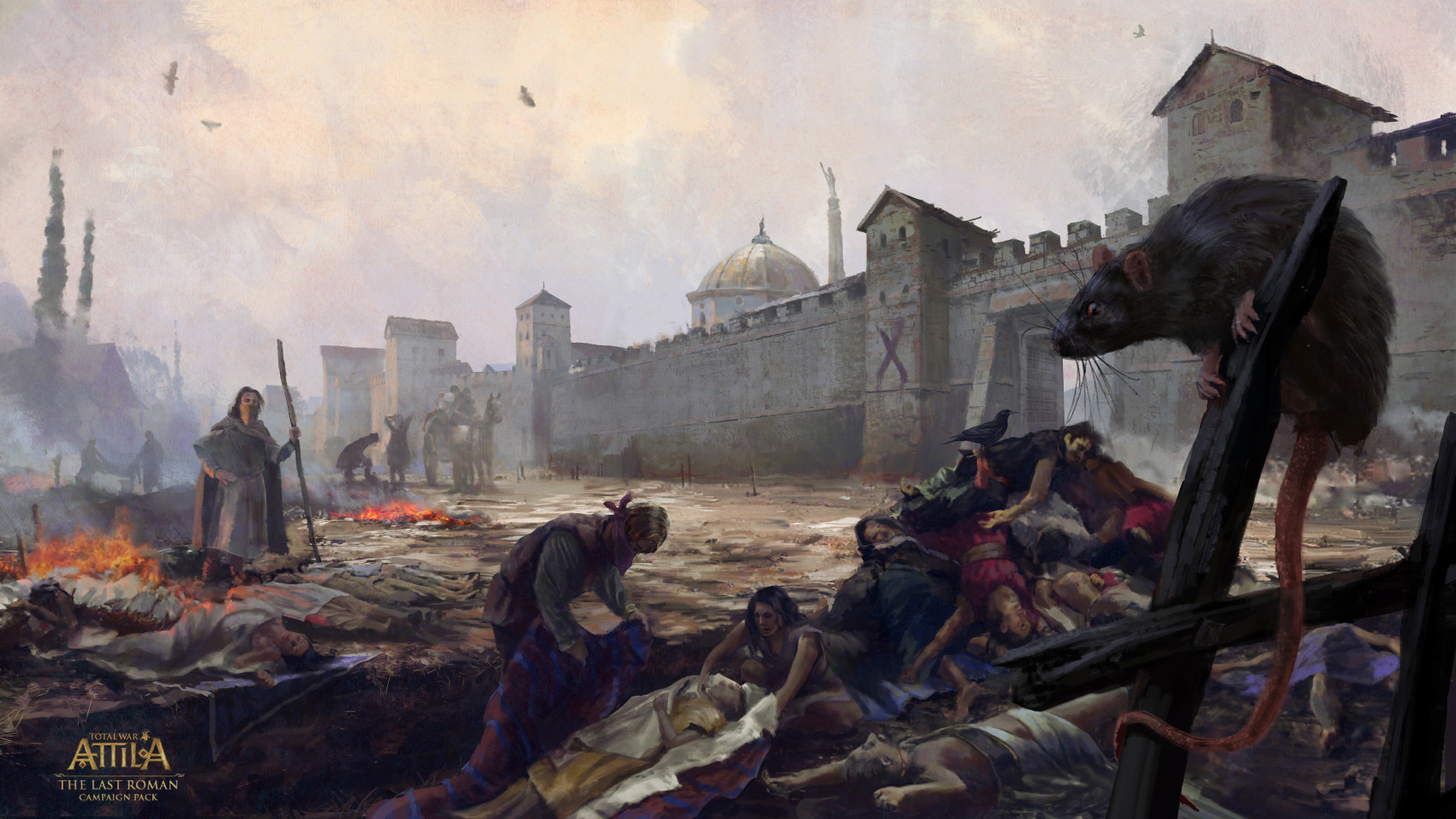

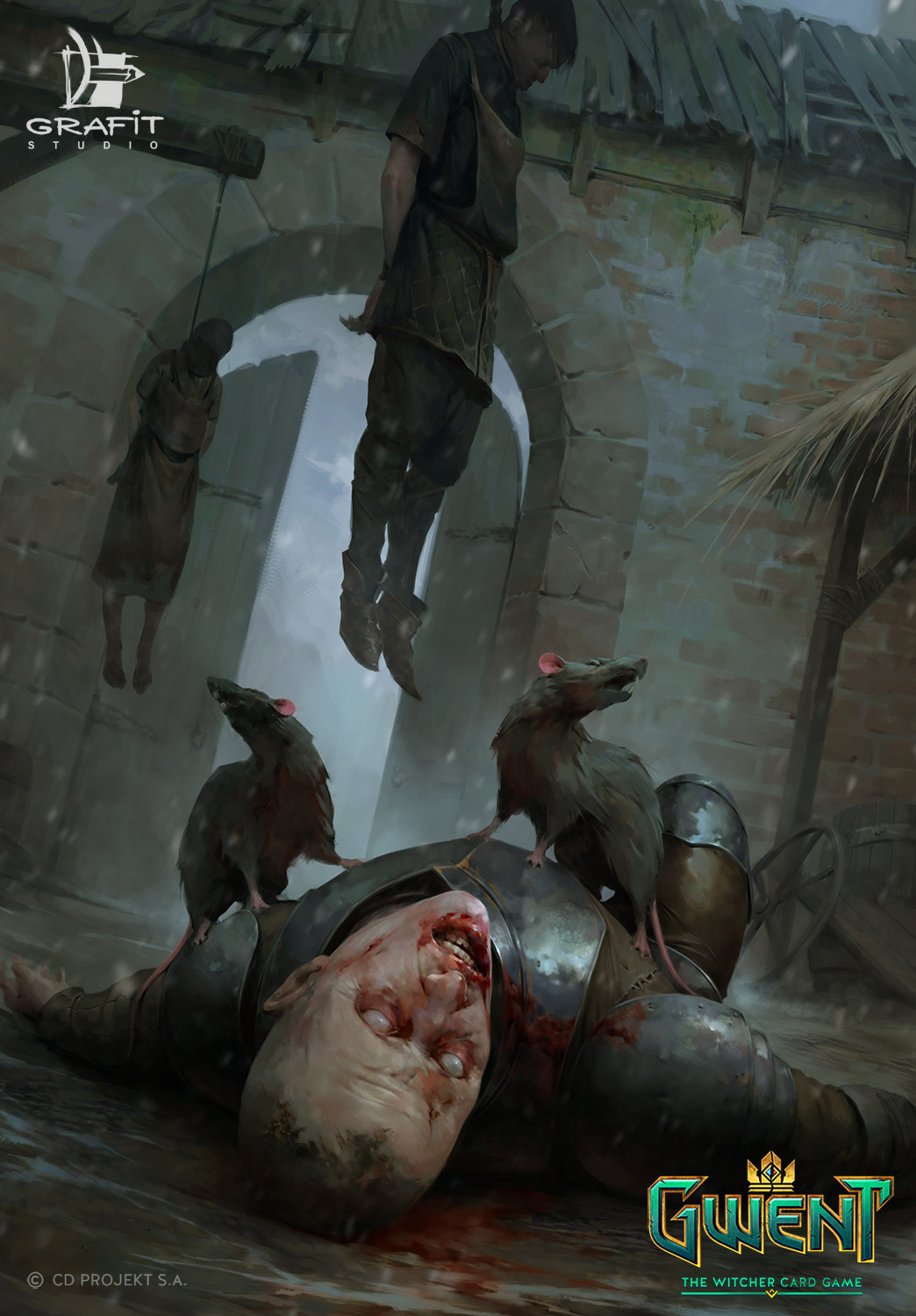

I would not be surprised if this was inspired by the corona virus outbreak. I like how the disease gives you energy in the first stage; all the better to have the subject come into contact with as many potential victims as possible. I also like the origin for the name. "Fatal deal" sounds like it could have it's origins with the belief that the disease was created with a man striking a dark bargain with some sort of demon, not knowing he was agreeing to his own doom. Diseases with long incubation periods are scary; you have no way to tell how far it has spread.